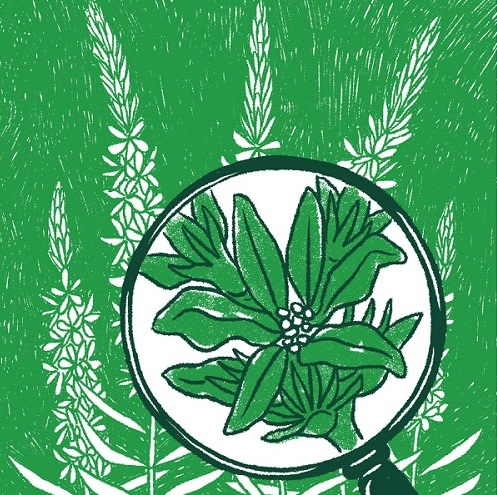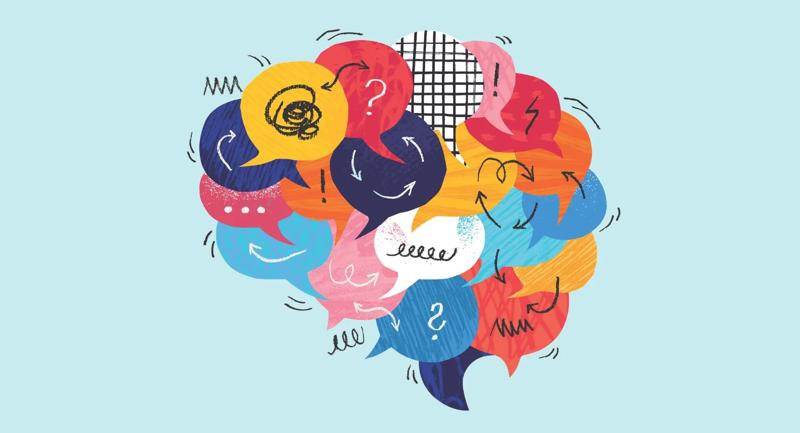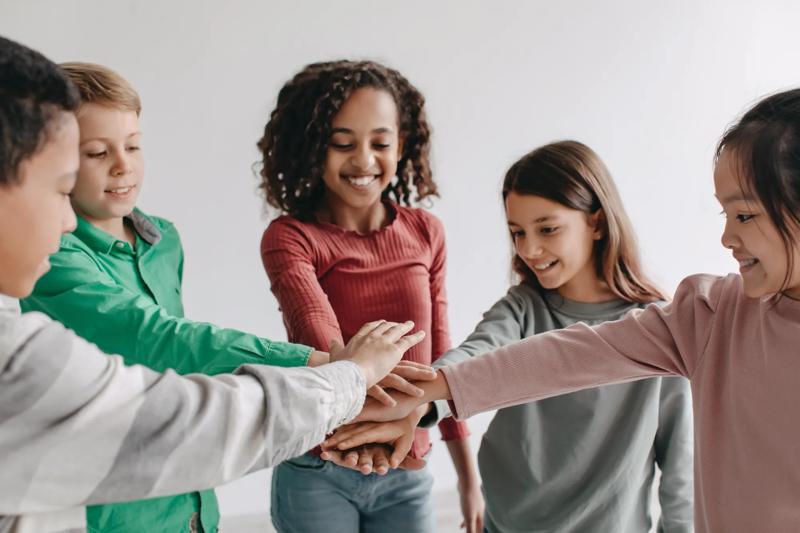"Deeper learning" is an umbrella term, informed by research from the Hewlett Foundation and the National Research Council, to describe the essential knowledge, skills, and dispositions students need for success in college, career, and life.
Deeper learning requires students to be able to
- Master core academic content.
- Think critically and solve complex problems.
- Work collaboratively.
- Communicate effectively.
- Learn how to learn.
- Develop an academic mindset.
After talking to national experts and reviewing multiple schools' performance records and designs, we identified eight exemplary schools that reflected diversity in location, size, design, and student demographics. Although the eight schools we visited were different in many ways—different models and settings—all made use of the same core practices to support the deeper learning competencies listed above. Teachers and leaders from the schools we visited offer the following strategies to prepare students for success.
Empower students as learners.
Given the social and economic world they will be entering, today's students need much less passive rule following and rote memorization, and much more guidance and support in becoming self-directed learners. A common practice that all the schools focus on is helping students take responsibility for their own learning and the learning of others. They do this through both their culture and pedagogy.
Students understand learning as a complex and ongoing process that entails seeking feedback, revising work, and reflecting on what one has produced and the decisions made throughout the learning process. Seeing that their work improves through successive rounds of feedback, revision, and reflection encourages students to better understand the amount of effort required to produce high-quality work. As a teacher at King Middle School in Portland, Maine told us, "School is revision."
Contextualize knowledge.
Students acquire content knowledge and skills through learning experiences designed to build student's capacity to identify key ideas, relationships, issues and skills rather than just memorizing facts out of context. This is most often done through the use of interdisciplinary teaching, themes that connect subjects and concepts, or the use of large conceptual questions driving students to use critical thinking and problem-solving skills.
Connect to real experiences.
Teachers also connect learning to real issues and settings in order to make it more meaningful for students and enhance their motivation to learn. There are frequent opportunities for students to experience workplace conditions and expectations and address real-world challenges by interacting with experts in relevant fields, taking on a professional role when doing a project, or by connecting historical events to current issues.
Teachers at King Middle School develop partnerships with area experts and local organizations to provide their students the opportunity to assume the role of a professional through a unit or lesson. For the 7th grade project "Alien Invaders," the teachers had their students work with biologists at the Gulf of Maine Research Institute (GMRI). The biologists gave a presentation on the impact of invasive species on the Maine environment. They then helped students create a set of species identification cards that were downloaded from the GMRI website by local citizens. Students assumed the role of scientists as they identified and cataloged specific invasive plants in the Portland region.
Extend learning beyond the school.
Students are provided with authentic learning experiences and opportunities to contribute to the community and experience learning beyond the school walls. For example, students at Science Leadership Academy in Philadelphia, Penn., learn alongside partner institution The Franklin Institute, the premier science education institution in the Philadelphia area. Students take mini-courses taught by museum or research staff, do internships, and engage in projects involving artifacts from the Institute and more.
All of the schools had an internship program where students worked with professionals in specific fields. Independent or whole-class projects were done in concert with a local agency, such as a research institute, a community-based organization, a business, or an environmental or a cultural institution.
Inspire students by customizing learning experiences.
Leaders and teachers across the schools establish strong relationships with students for the purpose of finding that spark that would ignite them to pursue their own learning passions. GE Lighting Division physicist Gary Allen, a volunteer at Cleveland, Ohio's MC2 STEM High School, puts it this way, "Each kid has to have their fuse lit for that rocket to take off. You can get them out on the launching pad, but if you don't light that fuse, they're not going to go."
Teachers at Avalon Charter School in St. Paul, Minn., use independent projects to both customize learning and provide inspiration for all of their students. For instance, teacher Kevin Ward drew from a powerful resource—an alumnus—to develop a personalized senior project that helped a student stay motivated and succeed academically. Calling on the student's keen interest in military history, he introduced him to the father of an Avalon graduate who designed geological survey maps and worked with the student to create a series of maps of the Battle of Gettysburg.
The teacher described the student's project as the best work the student had ever done. For the student, making maps brought the historical information he had read to life. He not only maintained his motivation throughout his senior year but also excelled, and then decided to major in history when he was admitted to and enrolled at Northwestern University.
Use tech to purposefully enhance rather than automate learning.
The schools use technology that builds students' research and critical-thinking skills, offer alternative methods to design projects, collaborate and communicate within and outside of the school, and broaden students' options for presenting work creatively and connecting with multiple experts.
Nothing is off limits: blogs as a form of reflecting or creating an argument, digital portfolios as a way to catalog or reflect on the learning process, or using video streaming to interview authors or experts in the field. At MC2 STEM High School, students use technology and a fabrication site to create "lighted snowflakes" that represent fractals. At Avalon School, a student built a guitar for his senior project and freshmen design conductive clothing. Sophomores at San Diego, Calif.'s High Tech High publish a book that is a compilation of their family's immigration stories; and at Portland, Maine's Casco Bay High School, students create a multimedia documentary based on extensive interviews and group work.
Teacher as "Learning Strategist"
For teaching to enable powerful learning experiences like the ones described above, the teacher has to fluidly shift among a range of roles, including learning designer, facilitator, networker, and advisor who coaches, counsels, mentors, and tutors depending on what is most needed to promote student learning. We call this the teacher as "learning strategist." No longer the gatekeepers of information, teachers become gateways to the experiences and communities that provide students with access to a wide range of knowledge. "They know who is around and always keep their eyes peeled for what other people can contribute," says Carrie Bakken, a teacher and co-director at Avalon School.
Teachers as learning strategists understand the need to balance both academic and social supports for learners. "I look for teachers who are experts in their content and who are compassionate and understanding of teenagers," says Jeff McClelland, the former principal of MC2. "Kids have to be able to access content at a high level. So you can't just love kids but not know your content. At the same time, you can't just love your content but dislike kids."
While you may not use the term "deeper learning" at your school, think about the ways that your school values and helps students develop the knowledge, skills, and dispositions to be successful in college, career, and life.






